Thumb Sucking, Pacifiers and Tooth Development
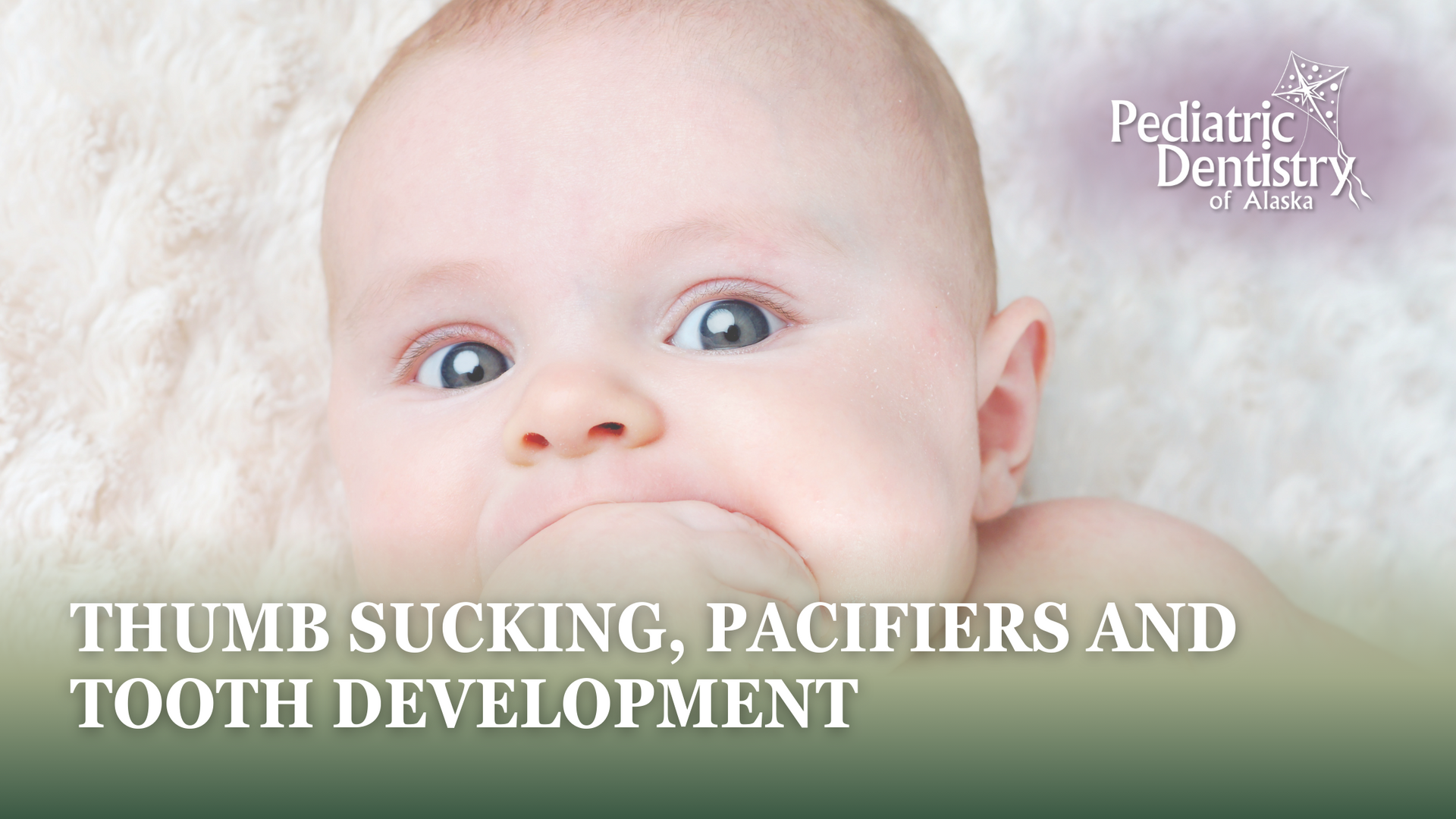
Source: Dr. Marketing
Pacifiers and thumb sucking are common habits among infants and young kids. While it is natural for babies to suck their thumbs for self-soothing and comfort, extensive thumb sucking, beyond the ages of 4 or 5, can potentially cause future dental and teeth development issues. If you have any dental concerns, we recommend booking their appointment at Pediatric Dentistry of Alaska and one of our pediatric dentists in Palmer, Alaska and Wasilla, Alaska will help address your concerns.
Thumb Sucking and Pacifier Use for Infants

Whether your child sucks their thumb or uses a pacifier, its sole purpose is to provide comfort. Some parents prefer their children to use their thumb, however, using a pacifier can be more beneficial. In general, for your child to accept a pacifier over its thumb, it is best to introduce one within the first two months.
How long should my child use a pacifier?
Once your baby starts to crawl, that is a good indicator to start weaning them off the pacifier. Around this time, your child’s speech will start to develop and pacifiers can interfere with this process – especially if they’re dependent on them.
By your child’s second birthday, try to eliminate pacifier usage. Avoid removing the pacifier during stressful situations as this can agitate your child further. During more neutral moments, avoid giving them the pacifier and swap it out with a toy instead.
How can pacifiers and thumb sucking affect children’s teeth?
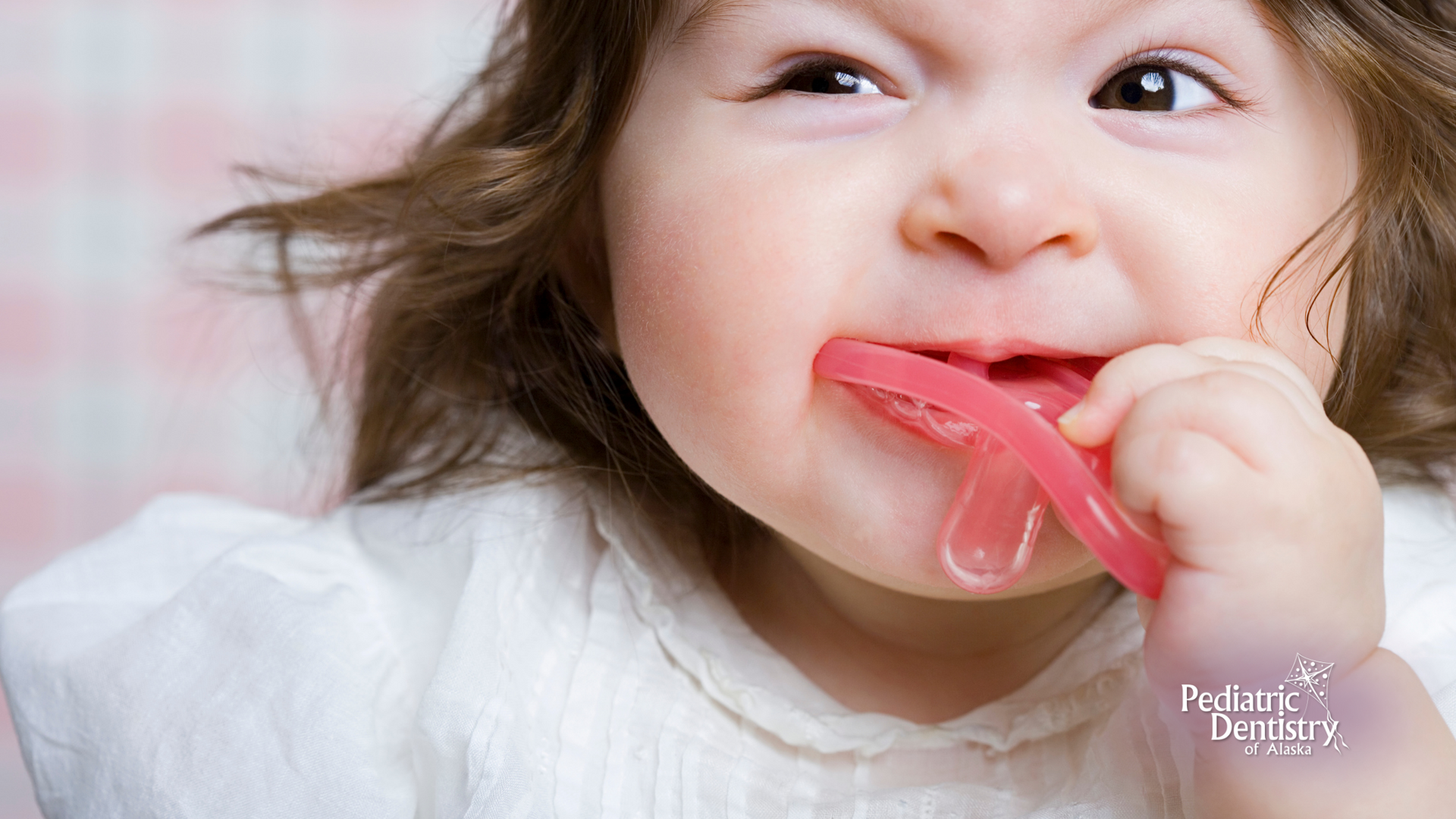
Excessive thumb sucking and pacifier usage can lead to serious damage. Here are a few things that can happen:
Jaw misalignment
Pacifiers come in many shapes and sizes. A lot of them are in an unnatural shape and do not mold perfectly to the mouth. So, over time both pacifiers and thumbs can lead to jaw misalignment. This can become an expensive endeavor if the habit isn’t under control.
Crooked or slanting teeth
If your child sucks their thumb and uses a pacifier excessively, it can cause slanting teeth. This will lead to poor dental aesthetics and extensive orthodontic treatments – from retainers, elastics, and even braces, depending on the severity.
Mouth ulcers and sores
Kids that suck their thumbs and use pacifiers are more prone to developing mouth ulcers and sores. This can happen if children scratch their mouth palette with their fingers. At this point in development, children’s mouth palettes are still quite soft and more susceptible to sores. In most cases, mouth ulcers take about one to two weeks to heal and do not usually need treatment. However, they can cause discomfort and make your child avoid brushing their teeth. If this becomes a habit, it can cause future oral health issues.
Tooth decay and cavities
Some parents may try to treat their babies by dipping pacifiers in honey or a sugary substance. If this becomes a constant habit, it can lead to eventual tooth decay, especially without proper oral hygiene.
Mouth roof narrowing
During childhood, the structure in a child's mouth is very pliable. If your child has repeated thumb sucking or pacifier exposure, it can cause the roof of the mouth to narrow. This can cause permanent teeth development issues. If you plan on purchasing a pacifier for your child, consider the following:
- Do not dip your pacifier in any sugary substances or honey
- Clean and rinse it with water to prevent bacteria from spreading
- Buy an orthodontic model or one-piece pacifier to reduce choking
How to Stop Your Child’s Thumb Sucking and Pacifier Habit
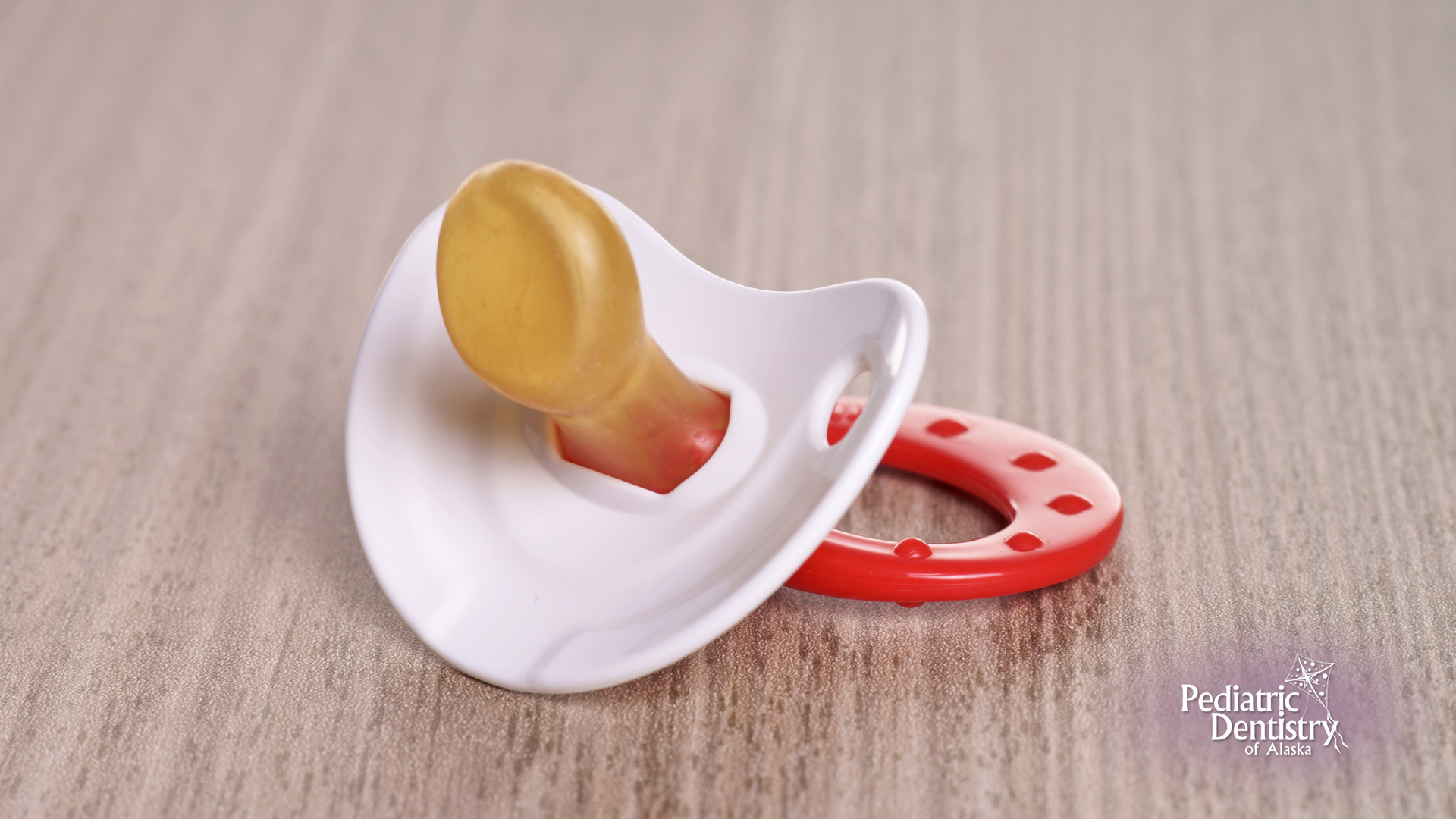
Most children and toddlers will naturally stop sucking their thumbs or using pacifiers between the ages of two and four. But, if it continues to be an issue, there are ways you can intervene. Here are a few tips you can try to help your child:
- Slowly start reducing pacifier exposure to your child
- Thumb sucking can be a more challenging habit to break. If you speak with a doctor, they may recommend an over-the-counter cream for your child’s thumb. The cream doesn’t taste good so it will stop them from sucking.
- Use positive reinforcement tricks
- Worst case scenario, there are other oral devices kids can use to prevent thumb sucking
Additional Ways to Help Your Child Stop Using Pacifiers and Thumb Sucking
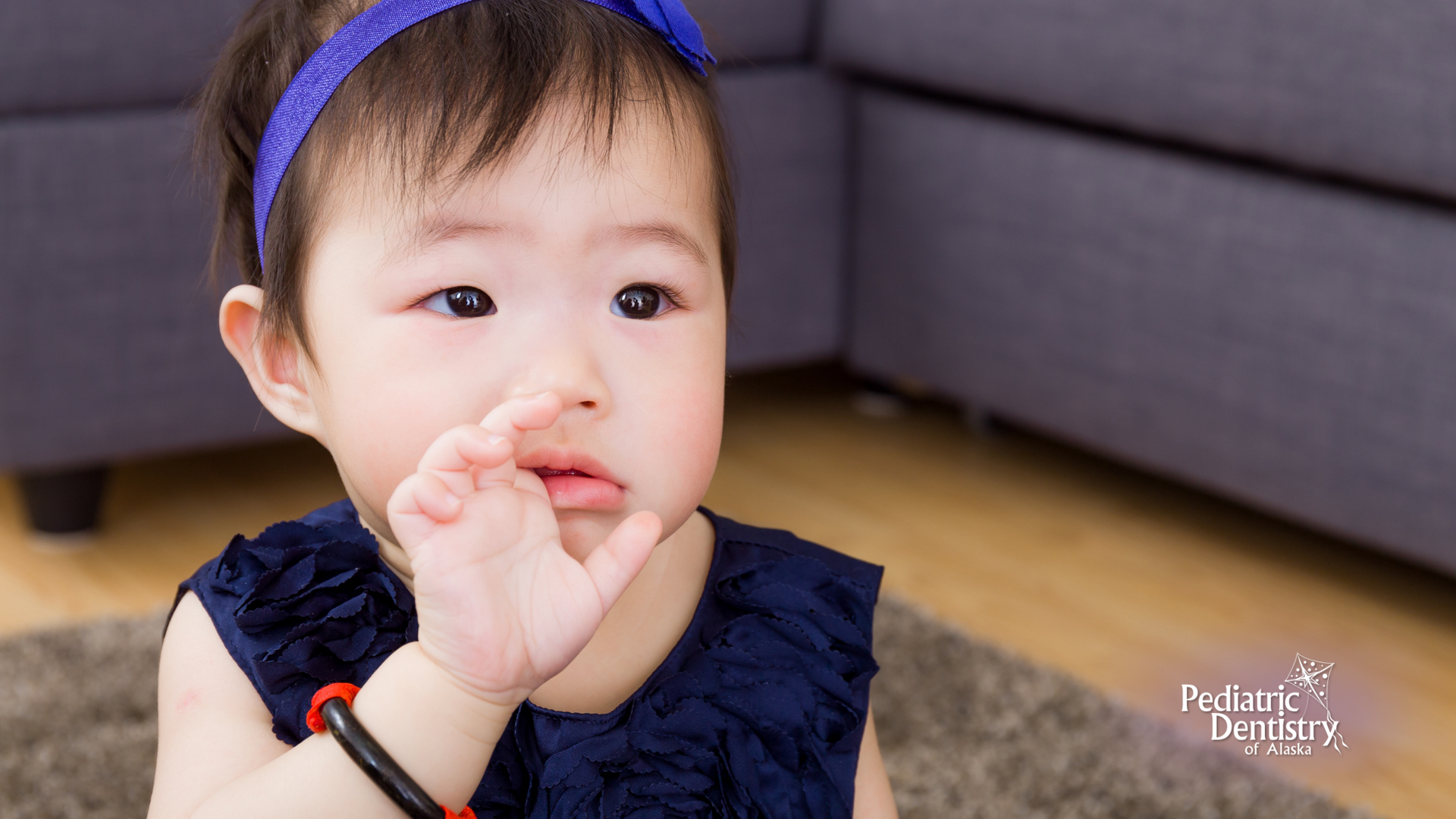
Here are some other ways you can help your child:
Notice your child’s pacifier and thumb sucking triggers
There are many reasons why kids will suck thumbs: boredom, fatigue, anxiety, and hunger – to name a few. If you notice your child sucking their thumb or grabbing for a pacifier, try to engage them in an activity that involves using their hands.
Ask one of our pediatric dentists for help
If you are not sure of the extent of the damage the pacifier or thumb sucking is doing to your child’s mouth and oral health, speak to one of our dentists. At our dental practice, Christian K. Lee, DDS, MS in Palo Alto, our team will find the best solutions for your child to help prevent thumb-sucking and pacifier issues.
Book routine checkups with our dental practice
The moment your child’s first tooth comes in, it is at risk for tooth decay or potential damage from excessive thumb sucking or pacifier use. Try to book appointments every 6 months with our pediatric dentists so you can stay on top of your child’s oral health and prevent any future dental problems.
What will happen to my child's smile if they continue to use their pacifier or suck their thumb as they get older?
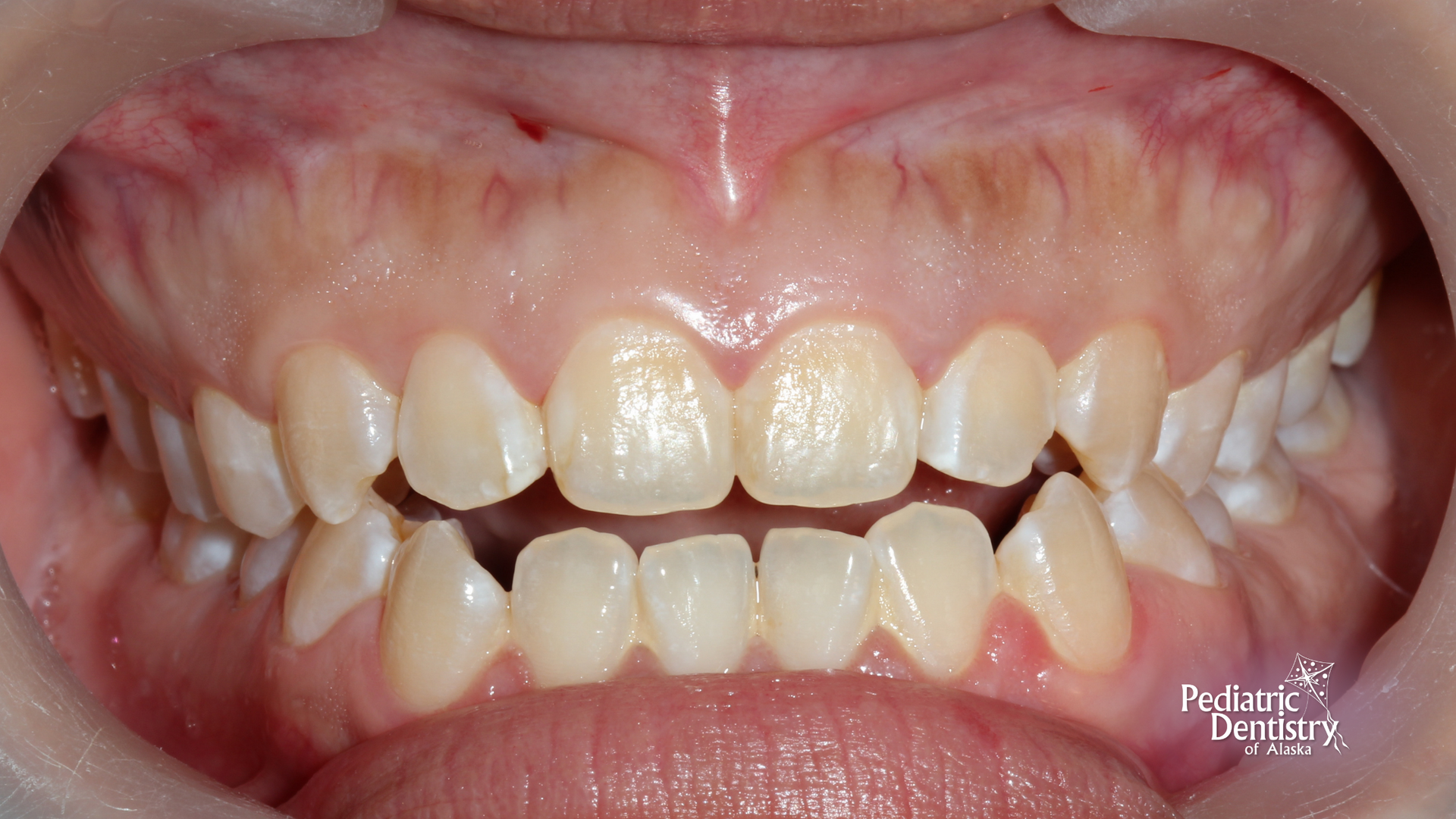
If your child continues to use a pacifier or sucks their thumb beyond the recommended age, there could be potential consequences for their dental health. Prolonged use of pacifiers or thumb sucking may impact the alignment of their teeth and the development of their jaw, potentially leading to malocclusion. This habit might result in issues such as overbites or underbites. In some cases, it could also affect the shape of the palate. To address these concerns, orthodontic care may be necessary to correct misalignments and ensure proper dental development. Early intervention by our dentists in Palmer, Alaska and Wasilla, Alaska can help prevent long-term problems and promote optimal oral health during your child's developmental years.
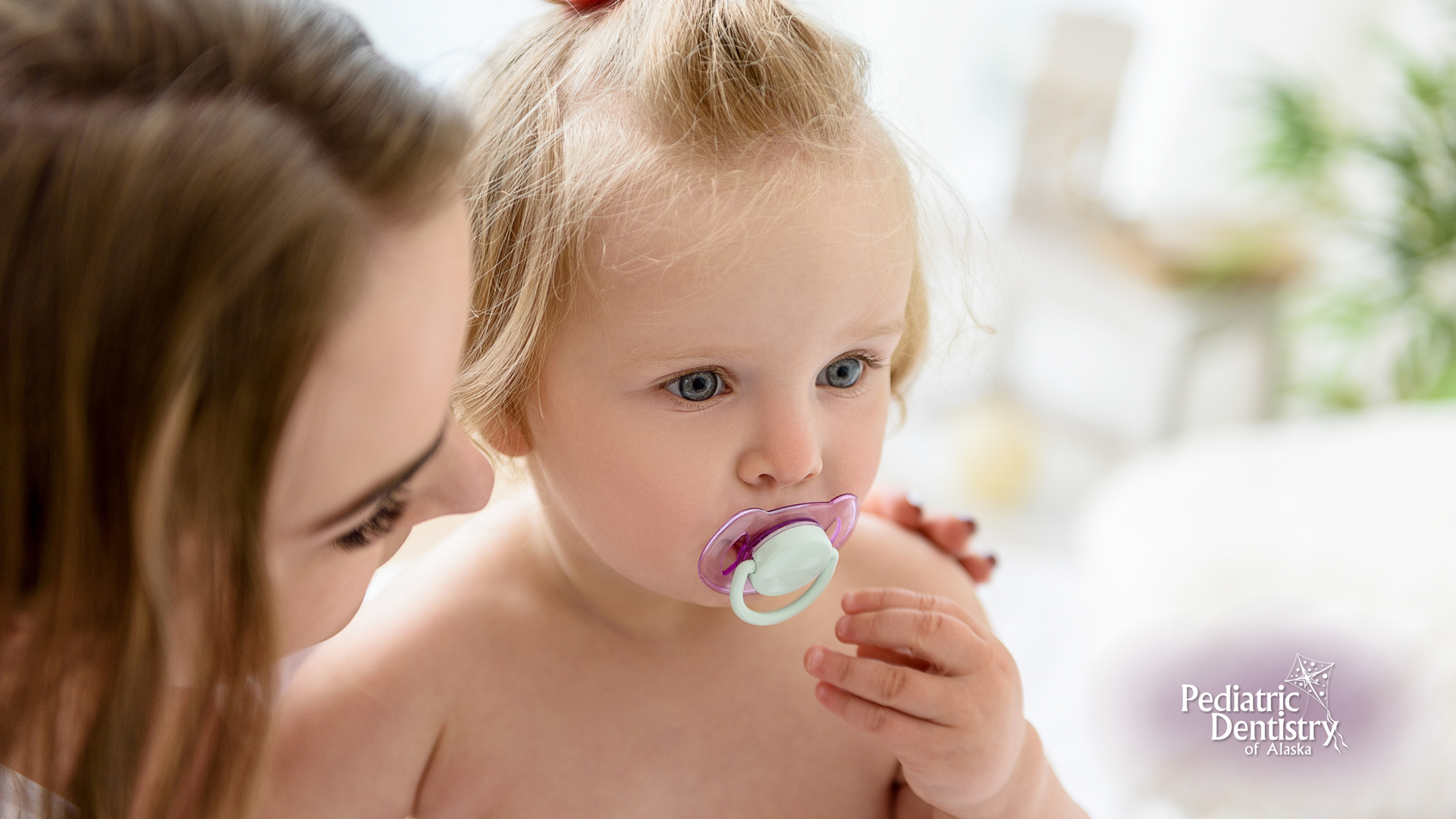
Remember, ensuring your child’s thumb-sucking or pacifier usage is at a healthy amount is important. Oral health and hygiene are essential for young kids. Make sure to monitor their habits so they do not affect your child’s mouth and tooth development. Approach these matters gently and try to positively support your children.
If you are not sure what to do, consult our pediatric dentists at our dental practice, Pediatric Dentistry of Alaska which is located in Palmer, Alaska and Wasilla, Alaska. We are here to help! Call us to schedule your child's dental appointment!
Together we can keep your child's smile healthy!



